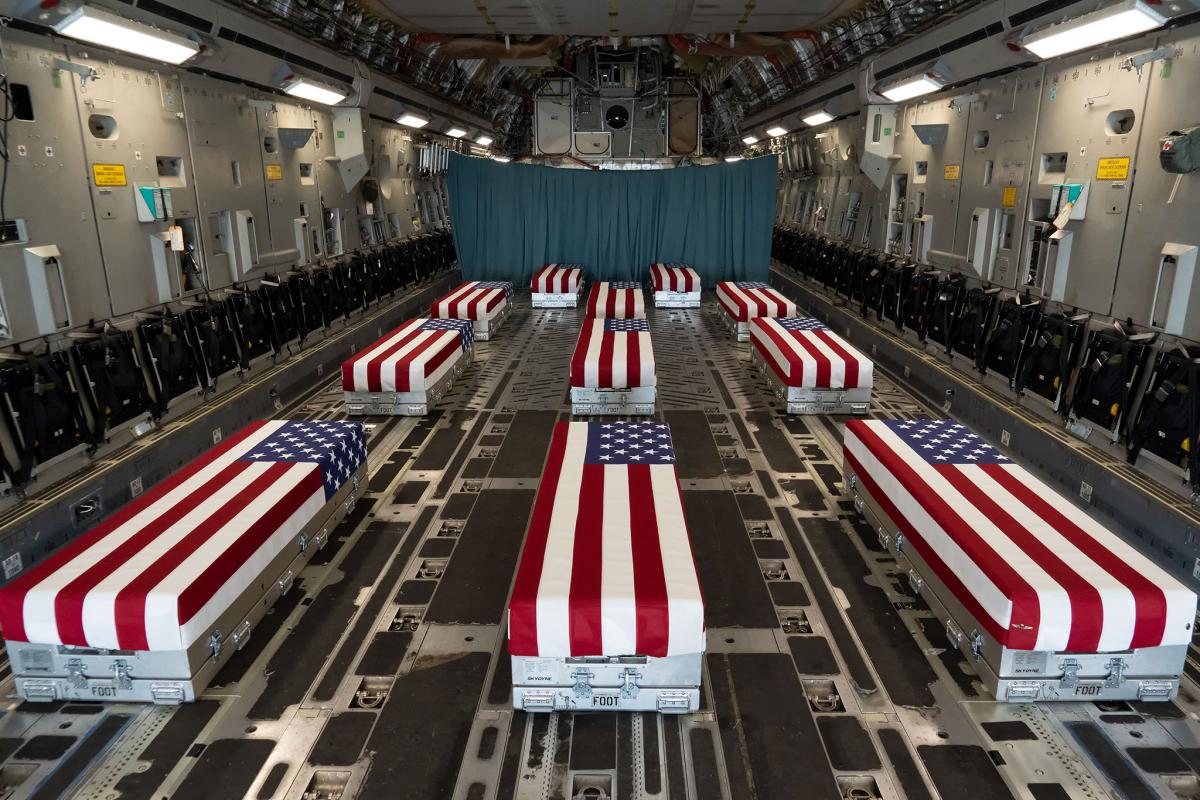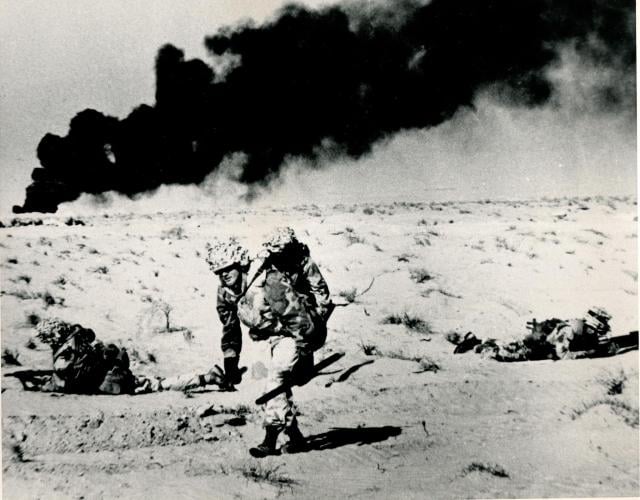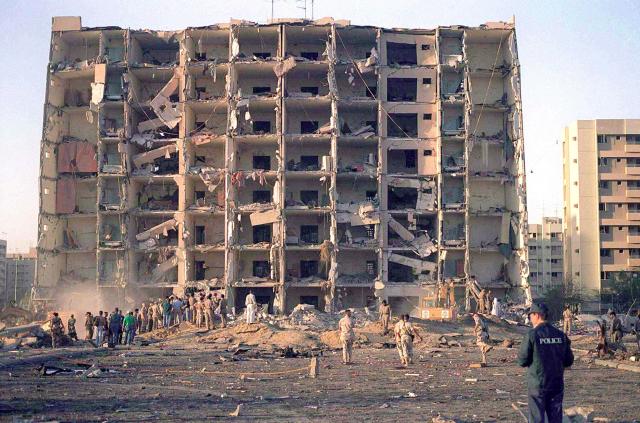
The tragedy that unfolded over the past several weeks in Afghanistan began with the creation of the “all-volunteer” military in 1973 and the self-promoting careerism that has stalked the Pentagon ever since. Too few leaders have been willing to speak truth to power and say no to overseas military adventurism that had little bearing on the safety and security of this nation. And it goes without saying that those in charge when the war begins are never those who have to finish it.
We saw this most clearly when, in 1990-91, America sent its young warriors into the deserts of the Middle East. We called it "The Gulf War” and “Desert Storm,” but it was, in reality, America’s first mercenary war. The Bush administration cut a deal with the Saudis and Kuwaitis: our men, their money. Kuwaiti “princes” lived large in hotels from Saudi Arabia to Paris while our young soldiers and Marines dug fighting holes in the desert under a searing sun.

U.S. Marines in Operation Desert Storm in 1991. (Naval Institute archives)
The peacetime, all-volunteer military, after all, was a good job with benefits and perks. And that “war” went relatively well and quickly with few American servicemembers killed or injured, to the high praise of the U.S. public who were entranced, awed, and seduced by the lethality, performance, and accuracy of our high-tech weapons, while forgetting that the troops on the ground, in the desert, held it all together and made the irrefutable success of the war possible. Yet it was also the start of the forever wars. Saddam Hussein remained in power after the war and the U.S. military remained in the Middle East—enforcing no-fly zones and oil embargoes on Iraq with naval forces in the Persian Gulf and air and land forces based in Kuwait, Bahrain, and Saudi Arabia.
While it might be a “chicken or the egg” argument, it is hard not to see that the permanent increase of U.S. military presence in the Middle East went hand in hand with the rise of militant Islam and anti-American terrorism. How many Americans remember the 1996 terrorist bombing of a U.S. Air Force barracks in Khobar, Saudi Arabia? Nineteen U.S. servicemembers were killed and 498 wounded. Two years later, the embassy bombings in Tanzania and Kenya killed 12 Americans and hundreds of civilians and wounded 4,500 people. Then came the October 2000 attack on the USS Cole (DDG-67) in Aden, Yemen, killing 17 sailors and injuring dozens of others. Less than a year later came the 9/11 attacks, answered shortly by the U.S. invasion of Afghanistan. A little over a year later, under the false pretense that non-existent Iraqi weapons of mass destruction would be used against the United States, came the invasion of Iraq.

The 1996 Khobar Towers bombing in Saudi Arabia killed 19 U.S. servicemembers and injured
nearly 500 more.
By the end of 2003, U.S. special operations forces had completed much of their mission in Afghanistan to capture or kill senior leaders and high-value targets within both al-Qaeda and the Taliban. The Pentagon, however, rather than putting their "swords" away somehow decided to "nation build" a medieval land of warring tribes into a Western-style democracy, ignoring the fact that our democracy took centuries and many great wars to achieve.
For the past 31 years, the brunt of the cost has been borne by the all-volunteer force. The majority of American citizens have not served (none were required to), and most know few who have. A few dozen—or even a few hundred—servicemembers killed per year was the cost of doing business. But where were the generals and admirals who should have stood up to the civilian leaders, without compromise, to say “enough,”—that foreign wars too often leave our soldiers, sailors, airmen and Marines dead and forgotten, and for what? Were the military’s senior leaders just following along in-line, waiting for their moment, their chance for another star, or a richly coveted post-retirement job with a "vendor." Were they just inured to the burdens of the profession? Unable to see the giant machine in which they were cogs—the failed foreign policy that resulted in the spilling of blood and national treasure for questionable (if any) gain.
It is no surprise that the "war" in Afghanistan eventually became a bottomless money pit. More than a trillion dollars was spent; did it make our nation safer, or did it just make Washington-connected corporations rich? Some of that money was funneled back to Congress through campaign donations and favors, all the while young Americans were being killed and wounded. Walk into any Veterans Administration hospital and see first-hand the reality that was brought home.
So, with the most recent deaths and injuries at Kabul International airport—clearly caused by a lack of planning, foresight, and courage at the top—we witness more evidence of the ongoing tragedy and travesty that is American "foreign policy" and the willingness of senior military leaders to go along with it. Will we ever learn? History suggests, no.
No comments:
Post a Comment